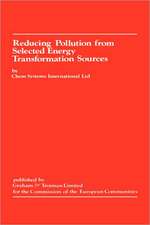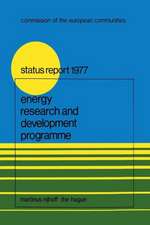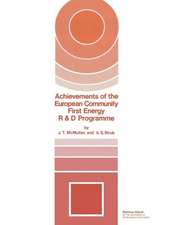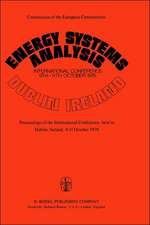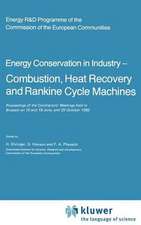Pumped Hydro Energy Storage for Hybrid Systems
Editat de Amos T. Kabo-Bah, Felix A. Diawuo, Eric O. Antwien Limba Engleză Paperback – 15 sep 2022
An essential read for students, researchers and engineers interested in renewable energy, hydropower, and hybrid energy systems.
- Provides a comprehensive overview of pumped-hydro storage systems and other uses of hydropower in hybrid energy systems
- Offers a practical approach that includes case studies to present in-depth information on project development and techno-economic challenges, including design, costs, performance and limitations of hybrid pumped hydro systems
- Explores pathways for hydropower energy storage systems optimization for better electricity generation
Preț: 683.24 lei
Preț vechi: 897.54 lei
-24% Nou
Puncte Express: 1025
Preț estimativ în valută:
130.75€ • 141.98$ • 109.83£
130.75€ • 141.98$ • 109.83£
Carte tipărită la comandă
Livrare economică 15-29 aprilie
Livrare express 15-21 martie pentru 75.100 lei
Preluare comenzi: 021 569.72.76
Specificații
ISBN-13: 9780128188538
ISBN-10: 0128188537
Pagini: 182
Dimensiuni: 152 x 229 x 17 mm
Greutate: 0.25 kg
Editura: ELSEVIER SCIENCE
ISBN-10: 0128188537
Pagini: 182
Dimensiuni: 152 x 229 x 17 mm
Greutate: 0.25 kg
Editura: ELSEVIER SCIENCE
Public țintă
Energy researchers in universities and energy industries involved in renewable energy and storage systems. Energy engineers and sustainable systems designers.Cuprins
1. Energy storage systems
2. Need for pumped hydro energy systems
3. Characteristic features of PHES systems
4. Impact of market infrastructure on PHES systems
5. Case studies-hybrid systems
6. Concept for Cost-Effective PHES system for Developing Countries
7. Technological Advances in Prospecting Sites for PHES
8. Techno-economic challenges and Opportunities of PHES
9. Lessons for PHES Systems Uptake beyond 2020
2. Need for pumped hydro energy systems
3. Characteristic features of PHES systems
4. Impact of market infrastructure on PHES systems
5. Case studies-hybrid systems
6. Concept for Cost-Effective PHES system for Developing Countries
7. Technological Advances in Prospecting Sites for PHES
8. Techno-economic challenges and Opportunities of PHES
9. Lessons for PHES Systems Uptake beyond 2020




